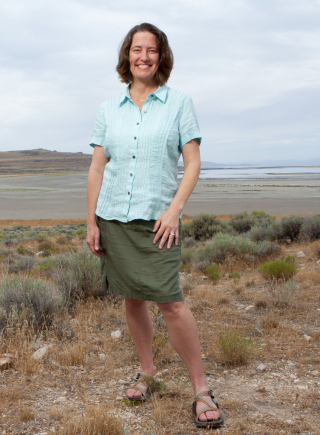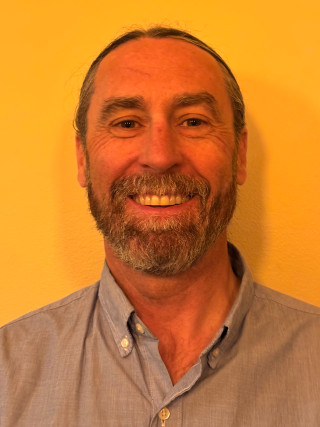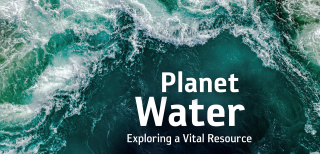2025 Lecture Series: Waters in the West Panel
Event Details
The City Library
210 E 400 S
Salt Lake City, UT 84111
United States
Join us 7 p.m. on April 17 at the City Library for an expert panel discussing water-related challenges and opportunities here in Utah and the American West.
About the Panel
Featuring local scientists and experts, the panel will explore the future of the water in the Wasatch Front, the Great Salt Lake, annual snow pack, and the Colorado River, all vital ecosystems facing record-low water levels and ecological strain. Through a conversation moderated by NHMU's Executive Director Dr. Jason Cryan, the speakers will give the audience a breadth of perspectives, information, and stories to consider as they think about our collective future. Join us and gain a fresh perspective of hope on how our community can protect and restore these systems through sustainable conservation efforts.
Panelists
- Seth Arens, Research Integration Specialist for Western Water Assessment
- Zachary Frankel, Executive Director, Utah Rivers Council
- Bonnie K. Baxter, Ph.D., Director, Great Salt Lake Institute
This event is free to attend with registration.
About the Panelists
Bonnie K. Baxter, Ph.D.

Bonnie K. Baxter, Ph.D. is a Professor of Biology and Director of Great Salt Lake
Institute at Westminster University, which focuses on collaborative research and community connections. Dr. Baxter researches the lake’s extreme microbiology, especially the foundation of the ecosystem-the algae and cyanobacteria that feed the brine shrimp and flies. She has published a trove of scientific articles on the lake’s extreme biology, the first academic book on the biology of Great Salt Lake, and the first children’s book about this lake. Dedicated to public speaking, Dr. Baxter has become a “spokescientist,” explaining the water crisis at the lake to government representatives, the media, and the community. Bonnie K. Baxter, Ph.D. is a Professor of Biology and Director of Great Salt Lake Institute at Westminster University. Her interdisciplinary training includes degrees from Elon University (B.S. Biology and Chemistry) and University of North Carolina-Chapel Hill (Ph.D. Genetics and Molecular Biology), and a post-doctoral fellowship at Washington State University (Biochemistry and Biophysics). Dr. Baxter’s work has been funded by the National Science Foundation, the National Institutes of Health, NASA, and many private foundations. She has published dozens of scientific articles, but she also enjoys writing for the public. She recently published Great Salt Lake Food Chains: Fragility and Resiliency, a science book for an educated lay audience. She co-edited and co-authored the first academic book on the biology of Great Salt Lake, Great Salt Lake Biology: A Terminal Lake in a Time of Change. She also co-wrote the first children’s book about this lake, The Great Great Salt Lake Monster Mystery. Dr. Baxter’s research focuses on the lake’s extreme microbiology, leading to projects on the lake ecosystem and the limits of life in salt. Her recent studies on microbialites demonstrate the devastating impacts of a shrinking salt lake. But the biology of a terminal basin is resilient, and Baxter is examining the pathways of ecosystem recovery if we can get more water to Great Salt Lake.
Seth Arens

Seth Arens has worked as a research scientist for Wester Water Assessment, an applied university-based research group that works with partners in Utah, Colorado, and Wyoming to better understand, adapt, and develop resilience to changes in climate. Aren's broad background in science includes climate science, ecology, hydrology, biogeochemistry, and atmospheric science. Current projects include working with regional communities to understand and prepare for changing climate hazards and investigating how desert riparian ecosystems are re-establishing in drying portions of Lake Powell.
Zachary Frankel

Zachary Frankel is the founder and executive director of the Utah Rivers Council. He successfully led campaign to stop proposed Diamond Fork Dam in 1997; authored Utah Water Conservation Plan Act in 1998; and successfully led a campaign to send CUP water North to Salt Lake County as alternative to proposed Bear River Development in 1998. Frankel has authored legislation amending the Bear River Development Act to remove two proposed dam sites in Box Elder County and Cache County in 2002. He led a campaign to protect Jordan River Soo'nkhani Village open space from UTA transit development in 2009.
2025 Lecture Series Sponsors
Founding Underwriter
R. Harold Burton Foundation
Underwriter
Cultural Vision Fund
Gold Sponsors
Karen & Ken Buchi
Curt and Mary Crowther
M Lazy M Foundation
Rio Tinto Kennecott
Silver Sponsors
The DiFiore Family Foundation
Diana George
Paula Swaner Sargetakis and Joe Sargetakis | Frog Bench Farms
The Wolf Clark Foundation
